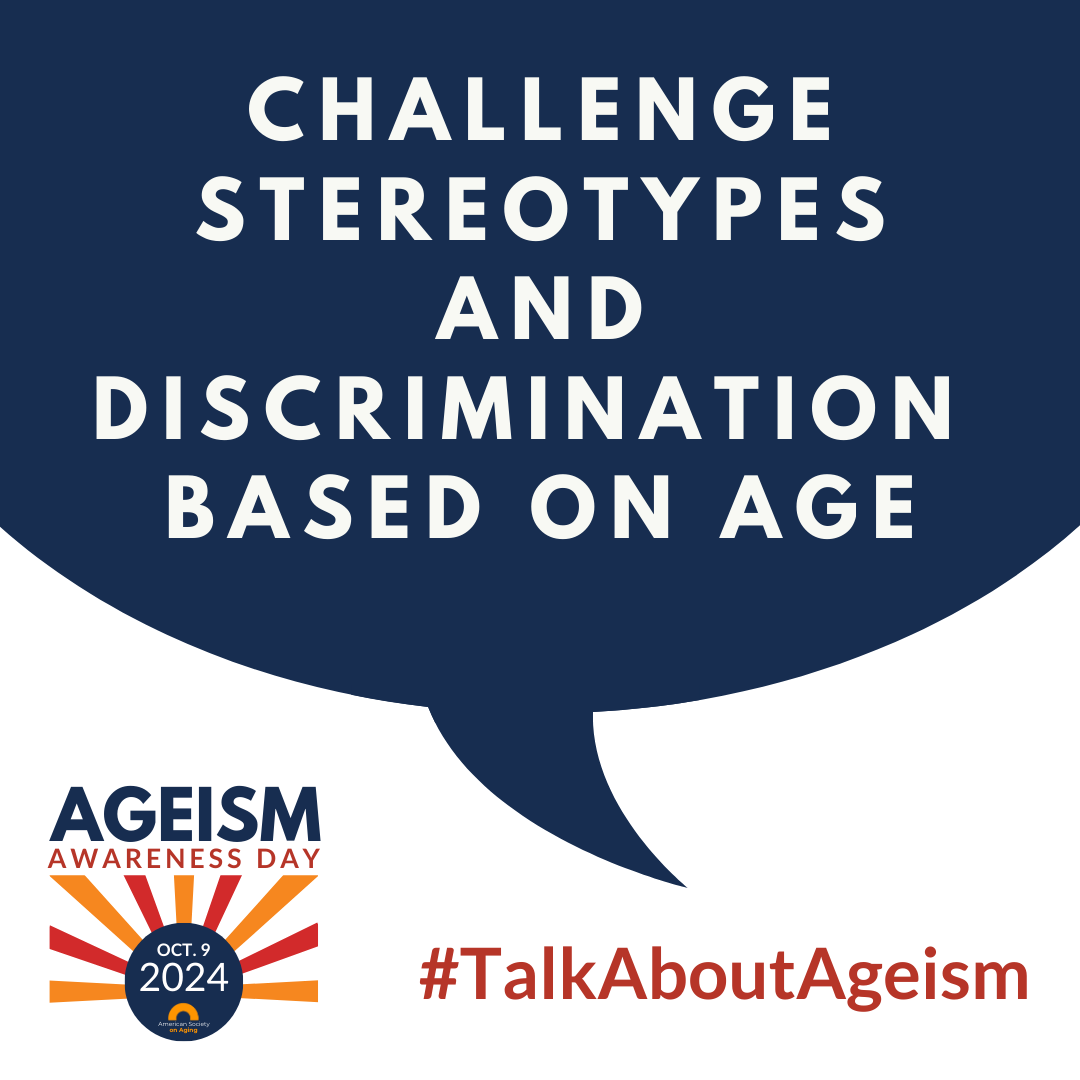
October 9th is National Ageism Awareness Day…and for a good reason! As an aging “Baby Boomer” myself, and a consultant with numerous seniors and their families, the topic of ageism rarely comes up. Yet, I am sure that ageism has affected many of you or your loved ones. We are all guilty of various stereotypes (how we think), prejudice (how we feel) and discrimination (how we act) but do we see how this applies towards others or oneself based on age? From the American Society on Aging:
“Ageism shows up in many ways, including:
- Internalized ageism: How we feel about ourselves as aging people; and ageism in which older adults marginalize and discriminate against other older people.
- Implicit ageism: The unconscious bias that includes attitudes, feelings and behaviors toward people of other age groups that operates without conscious awareness or intention.
- Interpersonal ageism: Ageist comments and behavior that happens between people when they interact. This can be implicit and unconscious or conscious. This may be negative, but can also come from positive intent, but still be based on stereotypes.
- Benevolent ageism: Patronizing, paternalistic beliefs or behaviors that older people need to be protected because they are no longer able to make decisions for themselves.
- Cultural ageism: The everyday, invisible, profoundly ingrained and normalized negative messages about aging and old people embedded in movies, TV, songs, jokes, etc.
- Institutional ageism: Unfair age-based restrictions in laws, policies, and practices of public and private institutions.
As you scan this list, I am positive every one of you thought of a story or experience you have had personally that falls into one of these categories. Were you overlooked for a job or a promotion due to your age? Were you subject to a “Reduction in Force”, and let go, perhaps because you were older and making a higher salary that your employer no longer wanted to pay? Was a younger worker brought in at a higher salary than you? Did a doctor dismiss your concern because he/she did not take you seriously due to your age?
From the National Library of Medicine: https://www.ncbi.nlm.nih.gov/pmc/articles/PMC4579241/
“One out of five adults over the age of 50 experiences discrimination in healthcare settings. One in 17 experience frequent healthcare discrimination, and this is associated with new or worsened disability by 4 years. Future research should focus on the mechanisms by which healthcare discrimination influences disability in older adults to promote better health outcomes for an aging population.”
“There is increasing evidence that how we think about ourselves as aging people affects our lifespan! Those with a positive point of view live 7.5 years longer than their peers with a negative view on aging! Pick up a copy of Dr. Becca Levy’s book, “Breaking the Age Code,” to learn more about how your beliefs affect your health mentally and physically. There is no denying the mind-body connection. “The single most important factor in determining longevity—more important than gender, income, social background, loneliness or functional health—is how people think about and approach the idea of old age.” (Dr. Becca Levy)
What can we do to make a difference? Speak out and speak up when you see or hear something blatantly ageist. Be a role model for others. Encourage more people to talk about ageism and how it affects us all on so many levels. Write to media outlets and post on social media. And most importantly, pay attention to your own inner voice. Write your own mantra full of positive energy and beliefs about yourself and say it every morning! I do, and it works…
NOTE: Your Invited to my presentation at The Village on Tuesday Oct. 29th at 2pm, “Develop a Plan to Age Successfully.” Please RSVP by Oct. 17th: Call 352-329-4431 or register online at TheVillageOnline.com/Calendar
Star Bradbury
Author, Successfully Navigating Your Parents’ Senior Years
Senior Living Strategies Consulting

No Comments